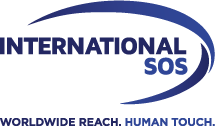A Nursing Perspective of Telemedicine on an Island
Antonio Bettencourt, Corporate Nurse Advisor & Claudia Brasil Cunha, Azores Community Nurse Specialist
São Jorge, is an island in the Azores Archipelago (Portugal) with about 9,000 habitants who make a living from dairy farms, fishing, tourism and services. With two public health centers, just over 30 nurses and five family physicians, there is no local hospital accessible by land. Although this place is paradise on earth, it has its shortfalls and poses challenges when it comes to accessing healthcare. Not only emergency care, but also standard primary care such as maternity, paediatrics, complex radiology, medical specialities, surgeries, oncology treatments, etc., are referred out to another island, usually Terceira, or even, very often, to mainland Portugal.
In this context of being an islander, TeleConsultation is a valuable resource that has gained greater importance over time, even more in the current pandemic. It is reshaping the current way of practicing, bringing benefits to both the population and medical professionals. An example has been within the anaesthesiology speciality. A closer cooperation between the nursing teams of both health centers and the anaesthesiology team at Santo Espírito Hospital in Terceira Island, has established a recurrent video conference meeting which allows providers not only to share complementary exams (ECGs, x-rays, blood results) but also to place the anaesthetist in front of the patient for an initial introduction to the entire anaesthetic process.
Download our 2020 Retrospective: Year of the Nurse & Midwife publication, which marks the celebration of nurses and midwives as they share their thoughts and experiences amidst the COVID-19 pandemic.

In Calheta Health Center, this meeting is led by the Family Nurse Specialist. After obtaining a signed consent, the families and the nurse discuss with the anaesthetist the assessment process. This includes biometric assessment (BP, pulse, height/ weight), past medical and surgical history, allergies, regular medication, alcohol and tobacco use, previous admissions, use of dentures and other personal specifics. Beyond the medical aspects of the discussion, this is a unique opportunity for the patient to establish direct communication with the anaesthetist and ask questions about the process beginning to end. The nurse leads that discussion, ensuring that the conversation responds to the patient’s needs.
The use of TeleConsultation is an asset as it leverages the access to healthcare among a very remote population. It is also cost-effective as it takes away the need for flights, accommodation, and everyday expenses on another island. Another substantial aspect to highlight is the benefit that it brings to specific groups, such as the disabled, elderly and other vulnerable people who many times don’t access care due to the fear of flying, decreased mobility, financial concerns or other social constraints.
From a nursing practice point of view, and considering the geographic limitations, TeleConsultations are an effective resource that promote excellence and bring substantial benefits to the population and to the whole team in a limited resource healthcare system. TeleConsultation is an important resource that nurses have at their service to maximise healthcare delivery.
Download our 2020 Retrospective: Year of the Nurse & Midwife publication, which marks the celebration of nurses and midwives as they share their thoughts and experiences amidst the COVID-19 pandemic.



